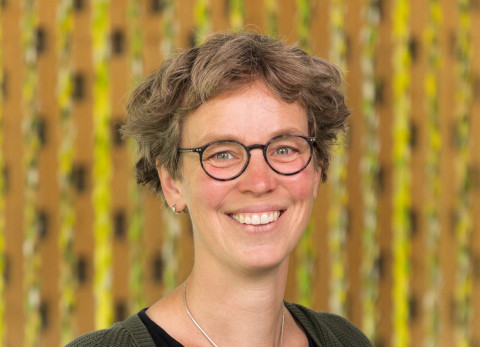New head of Terrestrial Ecology department: Ciska Veen

New head of Terrestrial Ecology department: Ciska Veen
Press inquiries
We are happy to welcome Ciska Veen as the new head of the department of Terrestrial Ecology of the Netherlands Institute of Ecology (NIOO-KNAW). She will start on 1 February 2025.
Ciska Veen first started at NIOO in 2014 with a Veni grant. Her current research aims to understand how soil biodiversity drives soil functioning and carbon storage. Veen obtained her MSc in 2005. In 2011, she defended her PhD thesis entitled: ‘Living apart together: Interactions between aboveground grazers, plants and soil biota.’ Both degrees were obtained from the University of Groningen. In 2011, she received a Rubicon grant to work at the Swedish University of Agricultural Sciences (SLU) in Umea, followed by a Veni grant in 2014 to work at NIOO-KNAW. In those research projects, she developed studies on soil carbon and nutrient cycling as affected by soil microbial communities.
Veen’s work has strongly contributed to the development of the ‘home-field advantage’ concept, which explains how plant species may benefit from decomposers that are specialised in recycling their own litter, thereby releasing nutrients for plant growth. In 2020, she started as a tenure-track researcher (funded by an Aspasia grant) at NIOO’s department of Terrestrial Ecology, aiming to understand how soil biodiversity drives soil functioning and carbon storage. This work is pivotal for understanding how climate change may be mitigated and how the sustainable use of ecosystems may be enhanced. She also works on the roles of soils in food forests and climate-smart forest management.
Veen is also part of the national SoilProS programme, the international Nutrient Network, and is involved in numerous other research collaborations, both nationally (chair of the National Centre for Soil Ecology) and internationally (member of the 2022 EASAC study group on ‘Regenerative agriculture in Europe’). She is an experienced supervisor of PhD candidates and postdocs, and actively contributes to building an inclusive scientific community.
